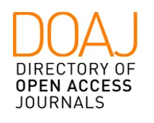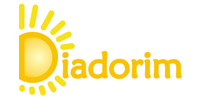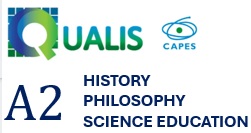Ethical Commitment
PUBLICATION ETHICS AND PUBLICATION MALPRACTICE STATEMENT
Transversal: International Journal for the Historiography of Science is committed to meeting and upholding standards of ethical behavior at all stages of the publication process.
The following members compose Transversal: International Journal for the Historiography of Science’s editorial board organizational structure: editor-in-chief, associate editor-in-chief, editorial and advisory committees. These members came from different universities in several countries. They worked together with the authors and anonymous peer reviewers to guarantee the quality and relevance of the journal contents and meet expected ethical standards in all stages in their involvement from submission to submission to publication of an article. Below is a summary of our key expectations of editors, peer-reviewers, and authors:
1- ETHICAL EXPECTATIONS
Editor’s responsibilities
1- To assume complete responsibility and authority to reject/accept an article based only on the paper’s importance, originality, clarity, relevance, and appropriateness to the mission of Transversal: International Journal for the Historiography of Science.
2- To dialogue with the Editorial and the Advisory Committee members about the journal’s policies, challenges, and targets, looking for a collective effort to improve the journal’s quality.
3- To strive to meet the needs of readers and authors, constantly a) improving the journal; b) ensuring the quality of the material they publish; c) championing freedom of expression; d) maintaining the integrity of the academic record; e) always be willing to publish corrections, clarifications, retractions, and apologies when needed.
4- To act in a balanced, transparent, and fair way while carrying out their expected duties, without discrimination on the grounds of gender, sexual orientation, religious or political beliefs, ethnic or geographical origin of the authors.
5- To ensure confidentiality mechanisms in all the submission process, managing blinded manuscripts and preserving the anonymity of reviewers.
6- To handle submissions of special issues in the same way as other submissions so that the articles are considered and accepted solely on their academic merit and without personal influences.
7- To publish guidance to authors on everything that is expected of them on our homepage. These instructions to authors are regularly updated and must inform the steps of the evaluation procedures. (See Author Guidelines)
8- To act if they suspect misconduct to both published and unpublished papers, following the orientations by COPE (Committee on Publication Ethics), giving authors a reasonable opportunity to respond to any complaints. All complaints are investigated no matter when the original publication was approved. Documentation associated with any such complaints is retained.
Authors’ responsibilities
When submitting an article using the journal’s submission system, authors electronically sign (with this submission) a “publication agreement” stating they own the manuscript, and commit to following the items below:
1- To commit to the journal’s Ethical Commitment (See the section Ethical Commitment).
2- To present their articles following the stylistic and bibliographic requirements outlined available in the Author Guidelines.
3- To provide a list of references, also indicating financial support, if any, and where available, URLs for the provided references.
4- To guarantee the article t) has not been published elsewhere and is not under consideration or accepted for publication elsewhere.
5- To know and accept the rules of the Creative Commons License Attribute BY. https://creativecommons.org/licenses/by/4.0/legalcode
6- To meet the expectations of Transversal: International Journal for the Historiography of Science of receiving original articles, with no plagiarism, no fraudulent data.
7- To notify the journal editor promptly if a significant error in their publication is identified.
8- To cooperate with the editor to publish an erratum addendum, corrigendum notice, or to retract the paper, where this is deemed necessary.
9- Authors are sending permission to use, reproduce, and publish charts, graphs, maps, diagrams, photographs displayed in their article.
10- The intellectual property rights of third parties must be respected.
11- Each author who signs the article should have significantly contributed to it.
12- If submitting to a peer-reviewed section of the journal, the instructions in Ensuring a Blind Review have been followed.
13- Authors are obliged to provide retractions or corrections of mistakes.
14- The submission file is in Microsoft Word or RTF format.
15- The text is single-spaced; uses a 12-point font; employs italics rather than underlining (except with URL addresses). All illustrations, figures, and tables are placed within the text at the appropriate points rather than at the end.
Publisher’s responsibilities
Transversal: International Journal for the Historiography of Science is published by the History Master and Doctoral Program of the Universidade Federal de Minas Gerais, Brazil.
1- To indicate the Editor-in-Chief.
2- To monitoring the suitableness of the editorial practices of the journal.
3- To provide good conditions for the maintenance of the academic record’s integrity.
2- PROCEDURES FOR DEALING WITH UNETHICAL BEHAVIOR
Complaints received by the journal will be evaluated and answered by both the Editor-in-Chief and the Editorial Board. These members are responsible for the proper investigation of eventual problems.
Evidence should be gathered while avoiding spreading any allegations beyond those who need to know.
Minor misconduct might be dealt with without the need to consult more widely. However, the author or the reviewer should be allowed to respond to any allegation in any event.
The Editorial Board, and the Coordinator of the History Master and Doctoral Program of the Universidade Federal de Minas Gerais, Brazil, should investigate eventual complaints against the Editor-in-Chief).
Outcomes (in increasing order of severity, may be applied separately or in conjunction):
- Informing or educating the author or reviewer where there appears to be a misunderstanding or misapplication of acceptable standards.
- A more strongly worded letter to the author or reviewer covering the misconduct and future warning behavior.
- Publication of a formal notice detailing the misconduct.
- A formal letter to the head of the author’s or reviewer’s department or funding agency.
- Formal retraction or withdrawal of a publication from the journal.
- Reporting the case and outcome to a professional organization or higher authority for further investigation and action.












